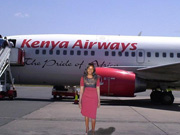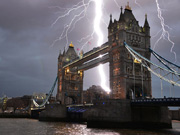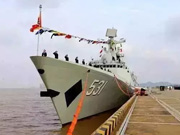


WASHINGTON D.C., April 1, 2016 -- Chinese President Xi Jinping (4th R, front) poses for a group photo with other leaders attending the fourth Nuclear Security Summit in Washington D.C., the United States, April 1, 2016. (Xinhua/Xie Huanchi)
NEW YORK, April 5 -- After nearly a week of the hustle and bustle, serenity descended on Washington, D.C. during the weekend. What is less tranquil is the global nuclear security landscape that is beset by the specter of nuclear terrorism.
Undoubtedly, the fourth Nuclear Security Summit (NSS) that ended on Friday has showcased some successes, such as a newly-amended nuclear protection treaty, the global reduction in nuclear material stockpiles, the creation of a nuclear security contact group and strengthened bilateral cooperations.
However, there should be no let-up in the global efforts to firm up each and every link of global nuclear security architecture beyond 2016, analysts say, warning against attention being diverted to elsewhere and progress sputtering to a halt.
SOLID PROGRESS
"The summit had some useful outcomes. Most particularly from China, the agreement to support the implementation Initiative on nuclear security is a very positive step forward," said Kenneth Luongo, president of the Partnership for Global Security.
In its national progress report on nuclear security delivered during the summit, China said it "will formally sign up for gift baskets including Strengthening Nuclear Security Implementation and Sustaining Actions to Promote Global Nuclear Security."
Zhang Hui, who heads the Harvard Kennedy School's research initiative on China's nuclear policies, noted that China's participation will be very important to strengthen its nuclear security system and increase international confidence in China's system.
"The initiative on Strengthening Nuclear Security Implementation (SNSI) has been as a key gift basket and a major accomplishment from the nuclear security summits," Zhang said.
Another eye-catching progress is the joint statement issued by China and the United States on nuclear security cooperation.
"This is the first time for China to issues such a kind of a joint statement at the summits," Zhang said.
In the statement, Beijing and Washington said they plan to conduct annual dialogue on nuclear security starting from this year.
"It is very positive development," said Luongo. "The U.S. and China have had cooperation on nuclear security over the years, but annual meetings make a big difference. They help to drive progress on important issues and also provide a forum for discussion which is very helpful," he added.
Meanwhile, getting enough ratification to get the Amendment to the Convention on the Physical Protection of Nuclear Material (CPPNM) to enter into force chalked up another major achievement, as it will provide a stronger legal basis for the world' s nuclear security work, Matthew Bunn, a specialist in nuclear security at Harvard's John F. Kennedy School of Government, told Xinhua.
The CPPNM is the only legally binding international instrument in the area of physical protection of nuclear material. IAEA Director General Yukiya Amano once called the amendment "the most important area of unfinished business in global nuclear security."
In addition, there was agreement to create a "nuclear security contact group" of senior officials that will meet later in the year, said Page Stoutland, vice president for scientific and technical affairs of the Nuclear Threat Initiative.
MISSED OPPORTUNITIES
"I think the summit has solid progress but also some missed opportunities," Bunn said.
The summit unveiled action plans for each of the five main international organizations and initiatives working to secure nuclear and radiological materials.
These organizations and initiatives include the IAEA, the United Nations, INTERPOL, Global Initiative to Combat Nuclear Terrorism, and Global Partnership Against the Spread of Weapons and Materials of Mass Destruction.
"I think there is a missed opportunity to do more to strengthen international nuclear security institutions because they will have to take up the slack that we are not meeting at the summit any more," Bunn said.
"Action plans really only strengthened those groupings very modestly."
In Luongo's view, another disappointment is that the summit did not set important, big long term goals for the next decade that countries could take action to meet in the absence of the summit process.
ACTIONS BEYOND 2016 NSS
For all the progress or missed opportunities, the end of the summit ushers in an era where individual country should continue their efforts to lock down their nuclear materials and secure nuclear facilities.
"Continuing the work within the five international organizations and the creation of a nuclear security contact group is a good start. It is important, however, that mechanisms be developed for the longer term,"Stoutland said.
According to the NTI, many countries do not yet have all the security measures in place. For example, nearly half of the countries do not require cyber security at nuclear facilities.
Meanwhile, at the moment, there are no globally agreed standards for effectively securing nuclear materials.
"We need to move on that direction, and we need fast global efforts to secure radiological sources that can be used in a dirty bomb. The risk can be reduced using very simple, low cost security measures," Bunn said.
In the post-summit era, Bunn said, the world needs to do whatever they can with all the available tools. "One of the key tools is bilateral cooperation. So I was happy to see the U.S. and China issue a joint statement on strengthening their nuclear security bilateral cooperation."
Meanwhile, there is a lot to be done to try to rebuild cooperation between the United States and Russia, he added.
According to Fissile Materials Working Group, Russia and the United States have well over two-thirds of all weapons-usable nuclear materials in the world.
More efforts are needed to ensure the IAEA gets reliable funding that allows it to actually plan and prioritize its activity, which means the funding is coming more from regular budget and less from voluntary contributions from member states, Bunn added.
Day|Week

 Kenyan woman's crappy photoshopped pictures make her a web celebrity
Kenyan woman's crappy photoshopped pictures make her a web celebrity Magnificent view of E. China's Anhui province
Magnificent view of E. China's Anhui province Global landmarks captured in striking shots
Global landmarks captured in striking shots Thailand Elephants Disguised as Pandas Sparks Debates
Thailand Elephants Disguised as Pandas Sparks Debates College girl dresses as mermaid to mark World Water Day
College girl dresses as mermaid to mark World Water Day J-15 fighters in drill on Chinese aircraft carrier
J-15 fighters in drill on Chinese aircraft carrier 96-Year-Old Veteran Becomes Fashion Icon
96-Year-Old Veteran Becomes Fashion Icon Creative mother produces 232 unique breakfasts
Creative mother produces 232 unique breakfasts Charming folk customs in Kalajun Grassland
Charming folk customs in Kalajun Grassland A glimpse of ships and boats commissioned to PLA Navy in past 3 years
A glimpse of ships and boats commissioned to PLA Navy in past 3 years